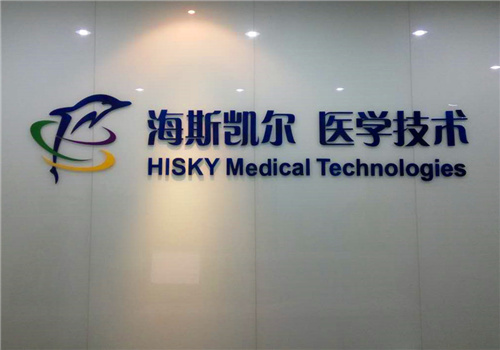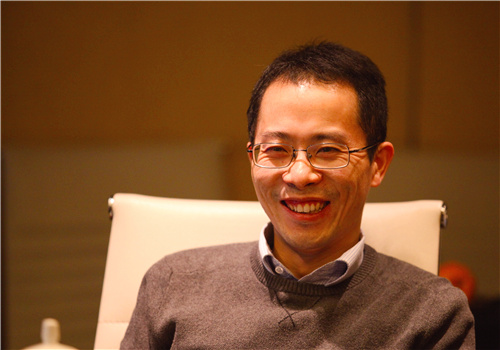
Editor's Note: Currently, the number of hepatitis B virus (HBV) carriers in China is estimated at 90 million, according to the National Health and Family Planning Commission. In addition, alcohol and fatty liver diseases are increasingly recognized as some of the most common chronic liver diseases in the country. Huge market demand for better medical care is expected to drive China's medical device industry, especially high-end products, towards unprecedented growth.
FibroTouch, the world's first noninvasive liver fibrosis diagnostic equipment, which instead uses ultrasound, was invented in 2010 by Shao Jinhua and his college roommates. Later, they founded Hisky Medical Technologies in Wuxi National Hi-tech District (WND).
Traditional invasive methods, such as biopsies, are widely used to detect liver fibrosis. However, such methods may bring secondary damage to the patient and the whole process is uncomfortable.
According to the company, FibroTouch uses what's called a "third-generation transient elastography technology", which it says overcomes certain technical limitations. The new approach enables detection of liver fibrosis in a noninvasive way, accurately and rapidly.
FibroTouch entered the market in 2013, and so far nearly 200 hospitals and medical institutions use its products.
Three doctoral graduates fromTsinghua University seek their dreams

As a doctoral graduate of Tsinghua University, Shao Jinhua had good prospects for employment at multinationals or large State-owned companies. But Shao, together with his college roommates, Sun Jin and Duan Houli, founded Hisky after inventing a new liver fibrosis diagnostic system.
During their successive postgraduate and doctoral programs, Shao, Sun and Duan focused on biomedical engineering and automation, respectively. Quickly they found that their different professional backgrounds complemented each other's advantages.
The trio spotted something interesting in Tsinghua University's transient elastography technology in 2003 and hoped that it could be applied in early diagnosis of liver disease.
In 2008, they made the decision to set up their own company to commercialize transient elastography technology.
"We will stay in Wuxi to exploit our undertaking"
It is quite a challenge to transform from a researcher into a company leader, especially as the two roles often rely of different points of view. Shao said that they felt great achievement when their scientific results were accepted by the market in 2013.
Doing scientific research and selling products are totally different, according to Shao, but he praised WND government's guidance in helping them set up their business and increasing the company's efficiency.
Many entrepreneurs tend to choose first-tier cities such as Beijing, Shanghai and Guangdong for their startup, Hisky however, chose Wuxi as its base due to the city's favorable policies and investment environment.
"We have feelings of affection towards Wuxi and will stay here for our bright future," said Shao.
Success = choosing + persistence + support + cooperation

Sadly, many university graduates do not succeed in their innovative undertakings due to a lack of experience and guidance. When talking about the successful experience of Hisky, Shao concluded with four words – choosing, persistence, support and cooperation.
The Hisky team chose medical diagnostics for liver disease, which is a promising market prospect with little competition at the moment, ensuring their advantages, said Shao, indicating choosing was very important in startup.
Entrepreneurs must have faith and persistence. Shao warned young entrepreneurs that though having a dream is beautiful, they should have the faith to cope with various troubles and setbacks.
At the preliminary stage, Hisky’s staff pulled together and juggled multiple jobs to minimize costs. The company also received support in policy, capital and service from the WND government, which is pivotal for early startups.
In addition, Hisky cooperated with Tsinghua University and the National Institute of Metrology on basic applied science research, which quickened the commercialization of products. "The market’s acceptance is the standard to decide whether the scientific results is useful or not," said Shao.
When recalling the original intention to set up Hisky, Shao said that they just hoped more patients could detect their liver diseases as soon as possible in order to get treatment. Shao said that in the future, the company hopes to develop diagnostic products for the early detection of breast, thyroid and heart conditions.